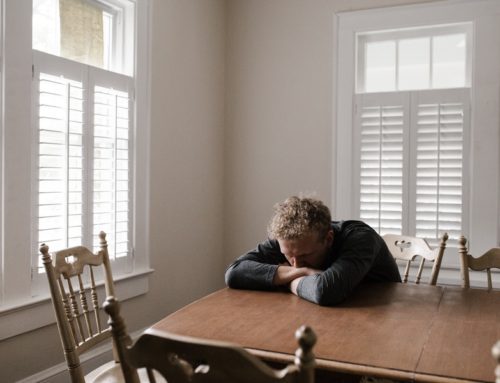You only have to look at movies and TV to know that loneliness is rampant in American society. Consider the recent streaming series Mr. Robot, in which the protagonist weeps in a corner from the pain of his loneliness, saying “I’m very different. What do people do when they can’t hold in the pain anymore?” Loneliness, defined as a sense of pervading unmet yearning for meaningful relationships or not, is real, it’s common, and it’s dangerous. Loneliness has been called the most tragic of all human conditions. Like most negative psychological states, it has a detrimental effect on your physical health and well-being.
When loneliness is defined as insufficient social connection, it’s a potentially lethal condition. Research by Julianne Holt-Lunstad indicates that smoking is a greater danger to health than obesity. A meta-study she conducted in 2015 showed that loneliness was a significant predictor for heart disease, stroke, diabetes and Alzheimer’s disease.
Loneliness is a subjective, highly personal state of mind that’s different for everyone who experiences it. It’s the personal, unique-to-the-individual way loneliness is perceived that’s at the root of the issue. No one has to be alone or socially isolate to experience loneliness. It’s about a state of feeling alone, cut off from others, that makes up loneliness. A lonely person yearns for close friendship but has none. Even though our society makes a lot of fuss over people have hundreds of connections on social media, the real difference between feeling lonely and feeling fulfilled comes down to having three or four close friends.
Some people have only a few close friends but never feel lonely. They don’t yearn for companionship because they feel like they have it. Conversely, many people who have lots of superficial friendships may state in a near-constant state of social buzz but yearn for a single relationship that allows them to bring their genuine, most authentic self to the table. Ultimately, loneliness stems from a lack of meaningful social relationships. The number of overall social contacts irrelevant when considering who’s lonely and who isn’t.
Loneliness and Mental Health
Loneliness has complex relationships with mental health. People with significant mental health issues like depression, bipolar disorder and anxiety disorders often isolate due to very real concerns about being ostracized. Their disorder may keep them from making close friends. People with social anxiety disorder, for example, have great difficulty in situations that might be conducive to making friends. Conversely, chronic loneliness contributes to the deep distress of depression and other disorders.
Consider then, what we can do when we’re bothered by loneliness. Frequent loneliness is a real, genuine sign that you’re missing something in your life. It’s not trivial and it’s not something that is harmless. There are lots of activities to do when we’re tired of being lonely. Sometimes the hardest part of beating loneliness is simply making ourselves get out of the house and be around other people. It’s almost universal that lonely people feel awkward in social settings.
Keeping a positive attitude is tough but try to consider the best in others. Loneliness makes us feel prone to rejection. We tend to jump to conclusions about how others see us. We imagine judgment where none is rendered, i.e., lonely people over misinterpret social cues as being unduly negative. It’s important to we understand that so often, rejection is in our mind. It might seem less painful to automatically reject ourselves rather than waiting for what we think is an inevitable rejection from another person.
In making relationships that can grow into real, meaningful friendships, we have to allow people the same fragility and vulnerability we feel in ourselves, every day, every minute.
Damaris Aragon, ARNP, BC provides a full spectrum of mental health care to people in Spokane, Washington and the surrounding areas. She focuses on providing compassionate personalized care that adheres to current evidence-based standards. Reach out to Damaris through her contact page or calling 509-342-6592.






